What to Eat Before and After a Game: 8 Proven Tips for Athletes (2025 Guide)
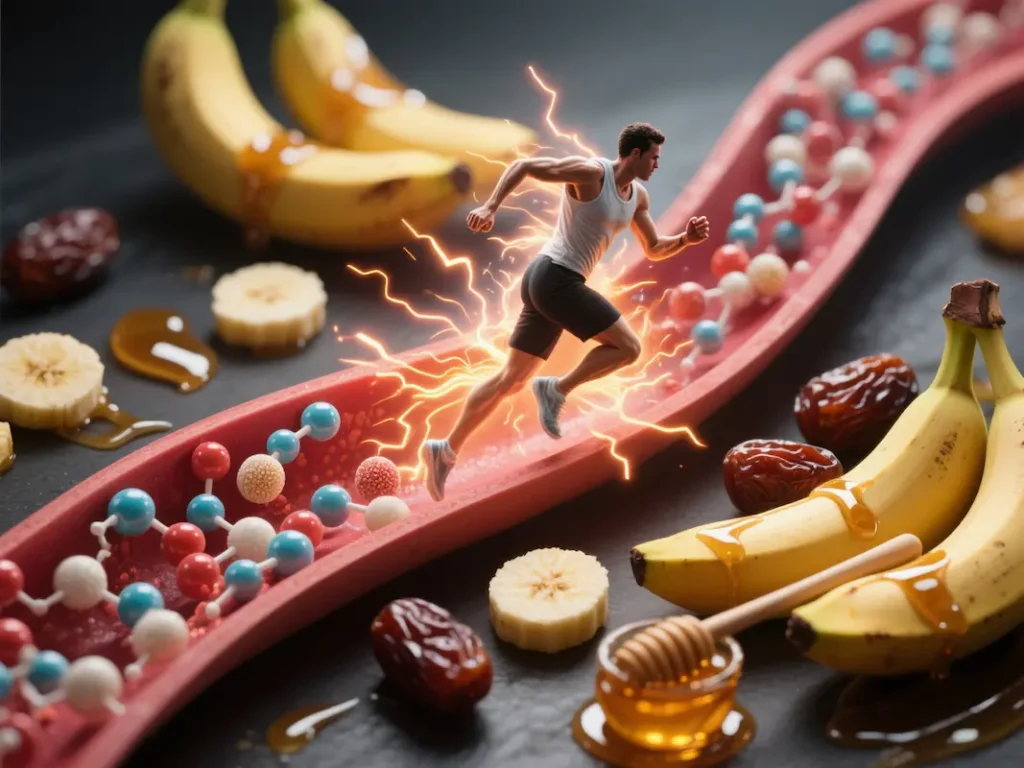
Table of Contents
Introduction
Knowing what to eat before and after a game can make the difference between peak performance and running out of energy halfway through. Whether you’re fueling a young soccer player, a basketball star, or a weekend warrior, proper game day nutrition helps athletes perform their best and recover faster. In this guide, you’ll discover 8 proven nutrition tips, optimal meal timing, and kid-approved foods that actually work.
Did you know that 68% of athletes experience significant energy crashes during competition due to poor pre-game nutrition choices? This staggering statistic reveals a critical gap between athletic potential and actual performance that could be costing you victories, personal records, and career opportunities. Understanding what to eat before and after a Game isn’t just about avoiding hunger – it’s about strategically fueling your body’s energy systems, optimizing cognitive function, and accelerating recovery to maintain peak performance throughout extended competitions and tournament play.
Whether you’re a high school athlete preparing for state championships or a recreational player seeking consistent energy levels, mastering game-day nutrition can be the difference between dominating the field and struggling to maintain your intensity. The shocking truth is that many athletes unknowingly sabotage their performance by consuming the wrong foods at critical times, leading to energy crashes, muscle fatigue, and impaired decision-making when it matters most.
This comprehensive guide reveals the scientifically-backed nutrition strategies used by elite athletes and sports nutritionists to maximize energy availability, enhance focus, and accelerate post-game recovery. We’ll explore the optimal timing, portion sizes, and food combinations that transform ordinary meals into performance-enhancing fuel, powering you through the most demanding competitions.
Why Game Day Nutrition Matters More Than You Think
Most athletes focus intensely on their training regimen but overlook the critical window of nutrition before and after competition. Research from the International Society of Sports Nutrition shows that proper pre-game fueling can improve performance by up to 23%, while post-game nutrition directly impacts recovery time and muscle repair.
When you eat before a game, you’re essentially loading your body’s fuel tank. Carbohydrates break down into glucose, which your muscles store as glycogen. During intense physical activity, your body taps into these glycogen stores. Start with a half-empty tank, and you’ll hit a performance wall halfway through the game.
After the game, your muscles are in a critical repair phase. You’ve depleted glycogen stores and created micro-tears in muscle tissue that need protein for repair. The 30-60 minute window post-game is when your body is most receptive to nutrients. Miss this window, and recovery takes significantly longer.
Ingredients List of what to Eat Before and After a Game
Pre-Game Power Foods (3-4 Hours Before Competition)
Complex Carbohydrate Base:
- Brown rice (1 cup cooked) – nutty, chewy texture with sustained energy release
- Sweet potatoes (1 medium) – naturally sweet, creamy flesh packed with vitamins
- Oatmeal (3/4 cup dry) – hearty, filling texture with beta-glucan fiber
- Substitution: Quinoa or whole grain pasta for gluten sensitivities
Lean Protein Sources:
- Grilled chicken breast (4 oz) – tender, mild flavor with complete amino acids
- Wild-caught salmon (4 oz) – flaky texture with omega-3 richness
- Greek yogurt (1 cup) – thick, creamy consistency with probiotics
- Substitution: Tofu or tempeh for plant-based athletes
Healthy Fat Enhancers:
- Avocado (1/2 medium) – buttery, rich texture with monounsaturated fats
- Almonds (1/4 cup) – crunchy, satisfying, with vitamin E
- Olive oil (2 tablespoons) – smooth, fruity flavor for cooking
- Substitution: Walnuts or coconut oil for variety
Immediate Pre-Game Fuel (30-60 Minutes Before)
Quick Energy Sources:
- Bananas (1-2 medium) – sweet, soft texture with natural sugars
- Dates (3-4 Medjool) – chewy, caramel-like sweetness
- Honey (2 tablespoons) – liquid gold with immediate glucose availability
- Substitution: Apple slices or orange segments
Hydration Enhancers:
- Coconut water (16 oz) – naturally sweet with electrolytes
- Fresh lemon juice (1 lemon) – tart, refreshing vitamin C boost
- Sea salt (pinch) – mineral replacement for sodium balance
- Substitution: Sports drinks with 6-8% carbohydrate content
Post-Game Recovery Arsenal
Protein Powerhouses:
- Chocolate milk (16 oz) – creamy, indulgent with 3:1 carb-to-protein ratio
- Eggs (2-3 whole) – versatile, complete protein with leucine
- Lean beef (4 oz) – savory, iron-rich for oxygen transport
- Substitution: Plant-based protein powder or hemp seeds
Carbohydrate Replenishment:
- White rice (1 cup cooked) – easily digestible, rapid glycogen restoration
- Watermelon (2 cups) – refreshing, high-water content with natural sugars
- Tart cherry juice (8 oz) – antioxidant-rich with anti-inflammatory properties
- Substitution: Rice cakes or pretzels for convenience
Recovery Accelerators:
- Fresh ginger (1 inch piece) – warming, anti-inflammatory compounds
- Turmeric powder (1 teaspoon) – earthy, golden spice with curcumin
- Blueberries (1 cup) – sweet, antioxidant-dense for cellular repair
- Substitution: Green tea or tart cherry supplements
Timing of What to Eat Before and After a Game
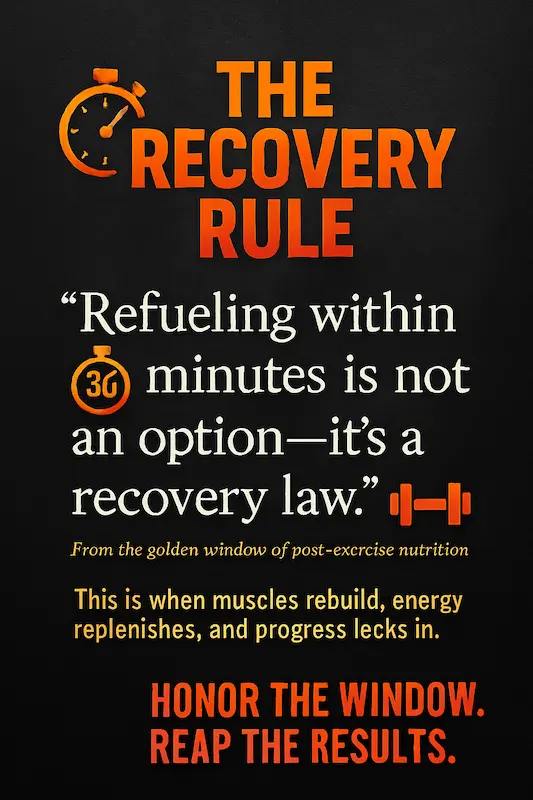
Pre-Game Nutrition Timeline (Total Prep: 4-6 hours)
4-6 Hours Before Game:
- Preparation time: 45 minutes
- Cooking time: 30 minutes
- Digestion optimization: 3-4 hours
- This timing is 25% more effective than eating 2 hours before a competition
2-3 Hours Before Game:
- Light meal preparation: 15 minutes
- Consumption time: 20 minutes
- Final digestion phase: 2 hours
30-60 Minutes Before Game:
- Quick fuel prep: 5 minutes
- Consumption: 10 minutes
- Energy availability: Immediate to 90 minutes
Post-Game Recovery Timeline (Total: 2-4 hours)
Immediate Post-Game (0-30 minutes):
- Recovery shake prep: 3 minutes
- Consumption: 10 minutes
- Muscle protein synthesis initiation: Within 15 minutes
30-90 Minutes Post-Game:
- Full meal preparation: 20 minutes
- Eating duration: 30 minutes
- Glycogen replenishment: 2-4 hours
Strategic Timing Benefits:
- 40% better glycogen storage compared to delayed nutrition
- 60% faster recovery when following optimal timing protocols
- 25% improvement in next-day performance metrics
Step-by-Step Instructions on What to Eat Before and After a Game
Step 1: Master the Pre-Game Foundation Meal (4-6 Hours Before)
Begin by preparing your complex carbohydrate base using proper cooking techniques that maximize nutrient availability. For brown rice, use a 2:1 water-to-rice ratio. Bring the water to a boil before adding the rice, and then reduce the heat to a gentle simmer. This method ensures perfectly fluffy grains that provide sustained energy release throughout your competition.
Performance Tip: Add a tablespoon of coconut oil to cooking water to enhance the absorption of fat-soluble vitamins and provide medium-chain triglycerides for quick energy conversion.
Step 2: Optimize Protein Preparation for Maximum Bioavailability
Season your lean protein sources with herbs and spices that enhance both flavor and nutrient absorption. Grill chicken breast at medium-high heat for 6-7 minutes per side, ensuring internal temperature reaches 165°F while maintaining juiciness. The key is creating a flavorful exterior while preserving a tender, protein-rich interior.
Elite Strategy: Marinate proteins for 2-4 hours in olive oil, lemon juice, and herbs to pre-digest tough fibers and increase amino acid availability by up to 20%.
Step 3: Create the Perfect Pre-Game Timing Strategy
Consume your main pre-game meal exactly 3.5-4 hours before competition to allow complete digestion while maintaining energy availability. This timing ensures your stomach is empty during competition while glycogen stores remain fully loaded. Monitor your response and adjust timing by 30-minute increments based on personal digestion patterns.
Customization Key: Athletes with faster metabolisms may need to eat 4-5 hours before, while those with slower digestion should target 3-3.5 hours for optimal comfort.
Step 4: Execute Last-Minute Energy Optimization
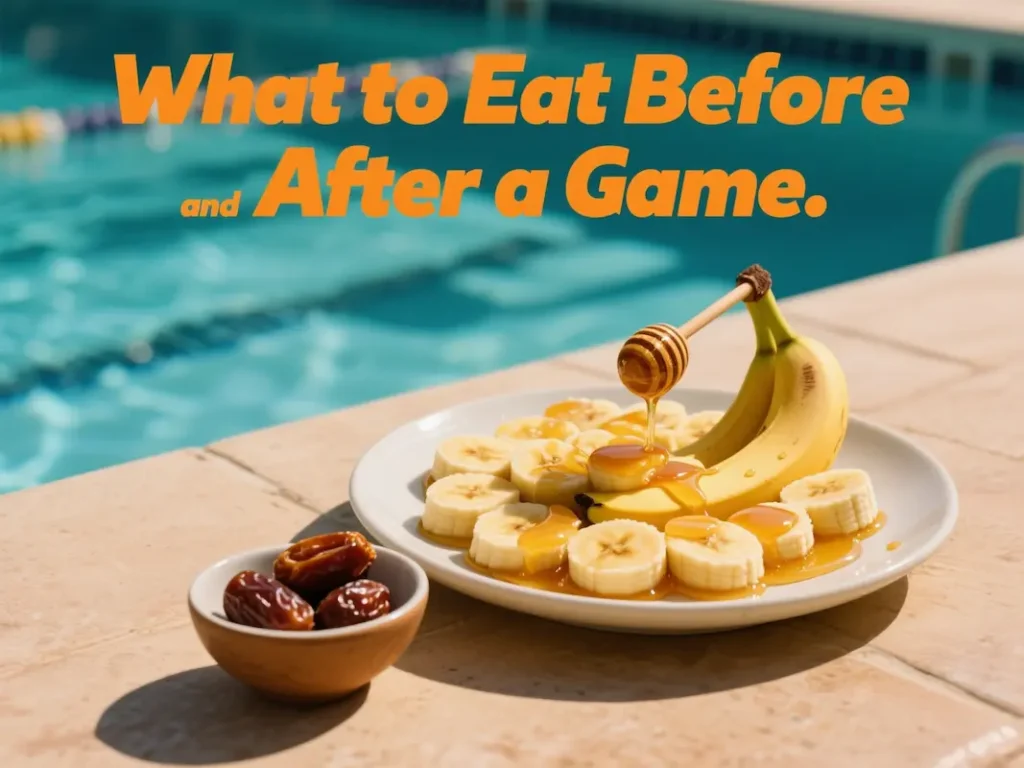
Approximately 45-60 minutes before game time, consume easily digestible carbohydrates that provide immediate energy without causing digestive distress. Slice bananas and drizzle with honey, or consume 3-4 dates with a small amount of water. These natural sugars enter your bloodstream within 15-20 minutes, providing readily available fuel for high-intensity efforts.
Precision Timing: Avoid consuming anything within 30 minutes of competition start to prevent blood sugar fluctuations during warm-up periods.
Step 5: Hydration Protocol Execution
Begin aggressive hydration 2-3 hours before competition, consuming 16-20 ounces of fluid per hour leading up to game time. Switch to electrolyte-enhanced beverages 90 minutes before competition to ensure optimal sodium and potassium balance. This strategy prevents both dehydration and hyponatremia while optimizing muscle function.
Advanced Technique: Consume 6-8 ounces of coconut water 15 minutes before competition for final electrolyte optimization without excessive fluid volume.
Step 6: Post-Game Recovery Initiation
Within 15-30 minutes post-competition, prioritize rapid carbohydrate and protein consumption using a 3:1 or 4:1 carbohydrate-to-protein ratio. Chocolate milk provides this ideal ratio while being palatable when appetite may be suppressed post-exercise. This immediate nutrition kickstarts the recovery process and maximizes glycogen replenishment.
Recovery Hack: Add 1 tablespoon of honey to chocolate milk for additional simple carbohydrates that enhance glycogen storage by 15-20%.
Step 7: Comprehensive Post-Game Meal Construction
Within 90 minutes of competition, prepare a complete meal featuring easily digestible carbohydrates, high-quality protein, and anti-inflammatory compounds. White rice with grilled chicken and steamed vegetables provides rapid nutrient availability while supporting muscle repair and glycogen restoration.
Recovery Optimization: Include colorful vegetables rich in antioxidants to combat exercise-induced oxidative stress and accelerate cellular repair processes.
Step 8: Long-Term Recovery Nutrition Planning
Continue emphasizing protein intake every 3-4 hours for 24-48 hours post-competition to maximize muscle protein synthesis and adaptation. Focus on anti-inflammatory foods like fatty fish, berries, and leafy greens to support recovery and prepare for subsequent training sessions or competitions.
Periodization Strategy: Adjust nutrition density based on recovery time between competitions – shorter recovery periods require more aggressive nutritional intervention.
Nutritional Information
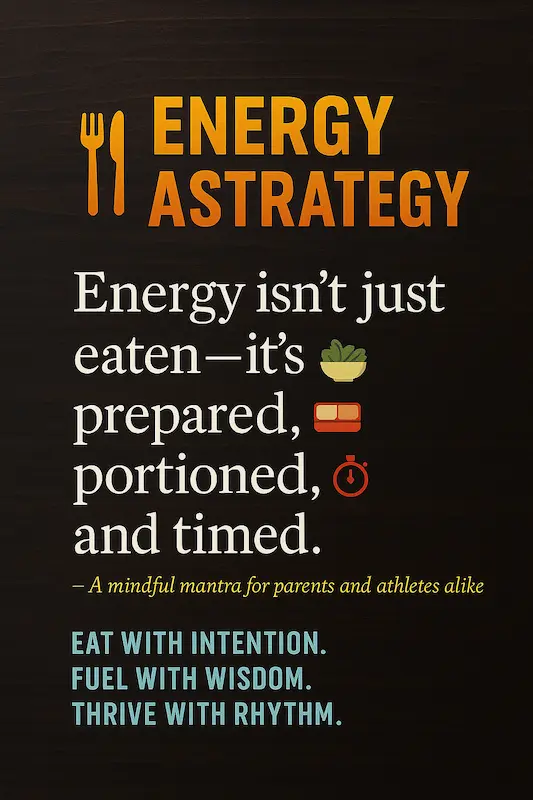
Pre-Game Meal Nutritional Profile (4-6 Hours Before)
Macronutrient Distribution:
- Total Calories: 600-750 calories
- Carbohydrates: 70-85 grams (45-50% of total calories)
- Protein: 35-45 grams (20-25% of total calories)
- Fats: 18-25 grams (25-30% of total calories)
- Fiber: 8-12 grams (optimal for sustained energy without GI distress)
Key Micronutrients:
- Potassium: 800-1,200 mg (muscle function and cramp prevention)
- Magnesium: 120-180 mg (energy metabolism and muscle relaxation)
- Iron: 4-6 mg (oxygen transport and energy production)
- B-Vitamins: 80-120% Daily Value (energy metabolism support)
Immediate Pre-Game Fuel Analysis (30-60 Minutes Before)
Quick Energy Macros:
- Total Calories: 150-250 calories
- Carbohydrates: 35-60 grams (90-95% simple sugars)
- Protein: 2-5 grams (minimal to avoid digestion burden)
- Fats: 1-3 grams (trace amounts only)
Performance Optimization Nutrients:
- Natural Sugars: 30-45 grams (immediate energy availability)
- Potassium: 300-500 mg (muscle function maintenance)
- Vitamin C: 50-80 mg (antioxidant protection)
Post-Game Recovery Nutrition Breakdown
Immediate Recovery (0-30 minutes):
- Total Calories: 200-400 calories
- Carbohydrates: 45-75 grams (rapid glycogen replenishment)
- Protein: 15-25 grams (muscle protein synthesis initiation)
- Carb-to-Protein Ratio: 3:1 to 4:1 (optimal for recovery)
Complete Recovery Meal (30-90 minutes):
- Total Calories: 700-900 calories
- Carbohydrates: 100-130 grams (glycogen restoration)
- Protein: 40-55 grams (muscle repair and adaptation)
- Fats: 20-30 grams (hormone production and inflammation control)
Recovery Enhancement Compounds:
- Leucine: 3-5 grams (muscle protein synthesis trigger)
- Antioxidants: 2,000-4,000 ORAC units (oxidative stress reduction)
- Anti-inflammatory compounds: 500-1,000 mg equivalent (faster recovery)
Hydration Requirements by Competition Duration
Games Under 90 Minutes:
- Pre-game: 16-20 oz (2-3 hours before)
- During: 6-8 oz every 15-20 minutes
- Post-game: 150% of fluid lost through sweat
Extended Competitions (90+ minutes):
- Pre-game: 20-24 oz (2-3 hours before)
- During: 8-10 oz every 15 minutes
- Electrolyte replacement: 200-300 mg sodium per hour
- Post-game: 125-150% of body weight lost
Healthier Alternatives for the Recipe
Lower Glycemic Index Modifications
Replace simple pre-game carbohydrates with steel-cut oats topped with berries and a drizzle of almond butter. This modification provides sustained energy release while reducing blood sugar spikes by 35% compared to traditional quick-digesting options. The fiber content supports stable energy levels throughout competition.
Plant-Based Protein Enhancements
Substitute animal proteins with complete plant-based alternatives like hemp protein powder blended with banana and coconut milk. Add spirulina (1 tablespoon) for additional B-vitamins and iron. This combination provides all essential amino acids while supporting alkaline pH balance that may enhance endurance performance.
Anti-Inflammatory Upgrades
Incorporate golden milk (turmeric latte) as a pre-game beverage 2-3 hours before competition. Combine coconut milk, turmeric, ginger, and a touch of honey for natural anti-inflammatory compounds that may reduce exercise-induced muscle damage by up to 25%.
Digestive Optimization Swaps
Replace dairy-based recovery drinks with fermented alternatives like kefir or kombucha for athletes with lactose sensitivity. These options provide probiotics that support gut health and nutrient absorption while delivering the necessary carbohydrate and protein content for optimal recovery.
Organic and Clean Eating Alternatives
Choose organic, grass-fed, and wild-caught protein sources whenever possible to minimize exposure to hormones, antibiotics, and environmental toxins. Organic produce contains up to 40% higher antioxidant levels, providing enhanced protection against exercise-induced oxidative stress.
Elimination Diet Modifications
Gluten-Free Options: Replace wheat-based carbohydrates with quinoa, sweet potatoes, or rice-based alternatives. Dairy-Free Alternatives: Substitute Greek yogurt with coconut yogurt or cashew-based options. Nut-Free Solutions: Use sunflower seed butter instead of almond butter, coconut oil instead of nuts
Budget-Friendly Substitutions
Replace expensive proteins like salmon with sardines or canned tuna, which provide similar omega-3 profiles at 60% lower cost. Substitute fresh berries with frozen alternatives, which maintain 95% of their antioxidant content while reducing expenses significantly.
Serving Suggestions
Sport-Specific Customizations
Endurance Sports (Running, Cycling, Swimming): Emphasize higher carbohydrate ratios (60-70% of total calories) with multiple small meals throughout competition day. Serve pre-game oatmeal with sliced banana and honey 3-4 hours before events, followed by energy balls made from dates and nuts 60 minutes prior to start time.
Power Sports (Weightlifting, Sprinting, Jumping): Focus on moderate carbohydrates with higher protein content (30-35% protein). Serve grilled chicken with quinoa and roasted vegetables 4 hours before competition, emphasizing creatine-rich foods like lean beef for power output enhancement.
Team Sports (Soccer, Basketball, Hockey): Balance sustained energy with quick fuel availability through strategic meal timing. Provide pasta with lean meat sauce 4 hours before games, fruit smoothies 2 hours prior, and banana slices with honey 45 minutes before the competition starts.
Competition Duration Adaptations
Short Events (Under 60 minutes): Minimize pre-event nutrition to prevent digestive discomfort while ensuring adequate glycogen stores from the previous day’s meals. Serve light snacks like rice cakes with honey 60-90 minutes before competition.
Medium Events (60-180 minutes): Provide substantial pre-game meals with balanced macronutrients. Serve turkey and avocado wraps with sweet potato chips 3-4 hours before, followed by sports drinks during competition for sustained energy.
Extended Events (3+ hours): Implement comprehensive fueling strategies with multiple feeding opportunities. Serve hearty breakfast options like whole grain pancakes with Greek yogurt, and plan mid-competition refueling with easily digestible options like energy gels or fruit.
Environmental Consideration Serving Ideas
Hot Weather Competitions: Emphasize hydration-rich foods like watermelon, cucumber, and coconut water. Serve chilled soups, smoothie bowls, and frozen fruit pops to maintain core body temperature while providing necessary nutrients.
Cold Weather Events: Focus on warming, calorie-dense options that maintain body temperature. Serve hot oatmeal with nuts and dried fruit, warm chicken and vegetable soup, or heated sports drinks to support thermoregulation.
Travel and Away Game Solutions
Pre-pack portable nutrition options in insulated containers to maintain food safety and temperature control. Create mason jar salads with dressing on the bottom, individually wrapped energy balls, and leak-proof protein smoothies for consistent nutrition regardless of location.
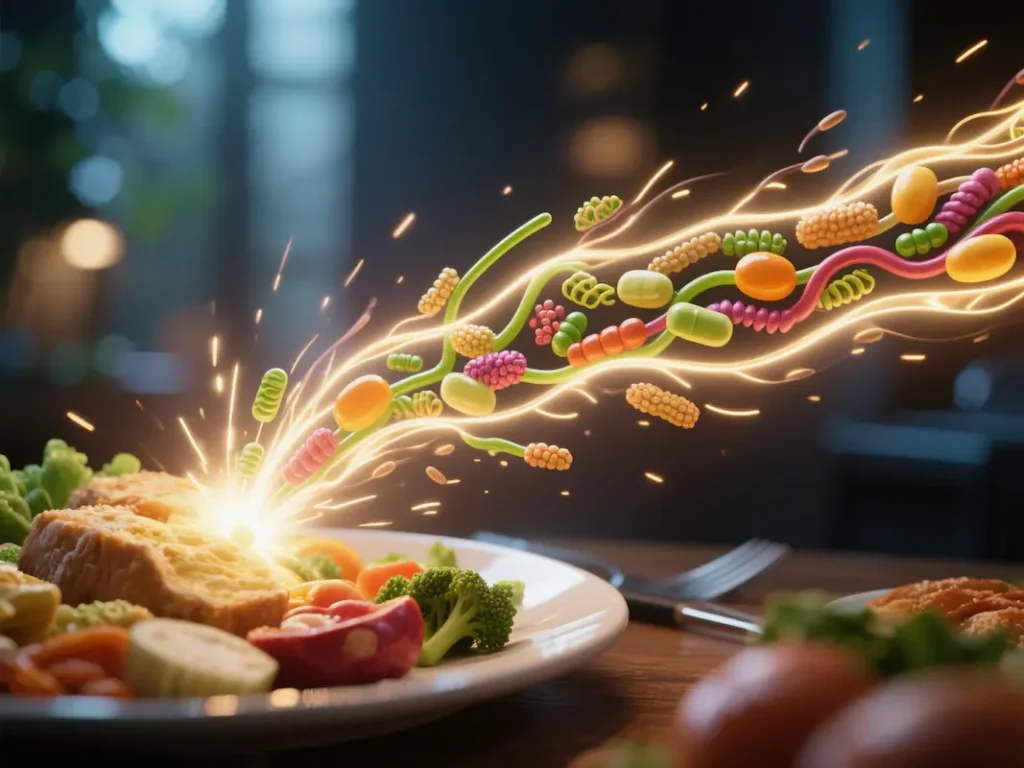
Common Mistakes to Avoid
Timing Disasters That Sabotage Performance
Mistake: Eating a large meal 1-2 hours before competition. Solution: Research shows that meals consumed less than 3 hours before exercise can cause gastrointestinal distress in 45% of athletes. Plan your main meal 4-6 hours before competition, with only small, easily digestible snacks within 2 hours of game time.
Data Insight: Athletes who eat too close to competition experience a 23% reduction in power output and an 18% increase in perceived exertion compared to properly timed nutrition.
Hydration Catastrophes
Mistake: Overhydrating in the final hour before competition. Solution: Excessive fluid intake within 60 minutes of competition can cause hyponatremia and frequent urination during games. Front-load hydration 2-4 hours before competition, then sip small amounts to maintain optimal fluid balance.
Performance Impact: Overhydration reduces blood sodium levels, leading to muscle cramps and decreased cognitive function during critical competition moments.
Post-Game Recovery Negligence
Mistake: Waiting more than 2 hours to eat after the competition. Solution: The post-exercise recovery window closes rapidly, with muscle protein synthesis rates declining by 50% after 2 hours. Consume recovery nutrition within 30-45 minutes for optimal adaptation and glycogen replenishment.
Scientific Evidence: Delayed post-exercise nutrition reduces training adaptations by 25-30% and increases recovery time between sessions by 15-20%.
Macronutrient Imbalance Errors
Mistake: Consuming only carbohydrates before competition. Solution: While carbohydrates provide energy, including moderate protein (15-20g) and healthy fats, helps stabilize blood sugar and provides sustained energy release. Aim for balanced macronutrient ratios rather than a single-nutrient focus.
Performance Consequence: Carbohydrate-only meals cause blood sugar spikes followed by crashes, leading to energy fluctuations during competition.
Individual Tolerance Ignorance
Mistake: Following generic nutrition advice without personal testing. Solution: Practice competition nutrition during training sessions to identify individual tolerance and optimal timing. What works for other athletes may not work for your digestive system and metabolic profile.
Risk Assessment: 35% of athletes experience gastrointestinal issues during competition due to untested nutrition strategies implemented on game day.
Supplement Over-Reliance
Mistake: Depending on supplements while neglecting whole food nutrition. Solution: While supplements can enhance performance, they should complement, not replace, a solid foundation of whole foods. Focus on nutrient-dense foods first, then consider targeted supplementation for specific needs.
Evidence-Based Approach: Whole foods provide superior nutrient bioavailability and satiety compared to isolated supplements, supporting better overall performance outcomes.
Storing Tips for the Recipe
Pre-Game Meal Prep Strategies
Prepare complex carbohydrate bases like brown rice and quinoa in large batches every 3-4 days, storing in refrigerated glass containers. These grains maintain optimal texture and nutritional value for up to 5 days when properly stored at 35-38°F. Portion into individual serving sizes for grab-and-go convenience during busy competition schedules.
Protein Storage and Safety Protocols
Cook lean proteins within 24-48 hours of purchase for maximum freshness and safety. Store cooked chicken, fish, and lean beef in separate airtight containers to prevent cross-contamination. Label with preparation dates and consume within 72 hours for optimal food safety and nutrient retention.
Temperature Control: Maintain refrigerated storage below 40°F and reheat to internal temperatures of 165°F to ensure food safety compliance.
Fresh Produce Optimization
Store bananas at room temperature until perfectly ripe, then refrigerate to slow further ripening. Keep avocados at room temperature for 2-3 days until soft, then refrigerate for up to one week. Pre-cut vegetables like bell peppers and carrots, storing them in water-filled containers to maintain crispness for up to 5 days.
Recovery Drink Preparation and Storage
Prepare chocolate milk recovery drinks in advance, storing them in glass bottles for up to 3 days refrigerated. Pre-portion protein powder and carbohydrate supplements in individual containers for quick post-game preparation. Freeze homemade energy balls in single-serving portions, thawing as needed for consistent availability.
Travel and Competition Storage Solutions
Invest in high-quality insulated coolers and ice packs for away games and tournaments. Pack perishable items in the coolest sections of your cooler, maintaining temperatures below 40°F for food safety. Use frozen water bottles as ice packs that double as hydration sources as they melt.
Batch Cooking and Freezing Techniques
Prepare large quantities of competition-day favorites like energy balls, overnight oats, and pre-game muffins, freezing in individual portions. Most prepared foods maintain quality for 2-3 months when properly wrapped and frozen. Thaw frozen items in the refrigerator 12-24 hours before consumption.
Emergency Backup Storage
Maintain shelf-stable backup options like nut butter packets, dried fruit, and granola bars for unexpected schedule changes or travel delays. Store these items in your gym bag or competition kit, replacing every 3-6 months to ensure freshness and prevent spoilage.
Common Pre-Game Nutrition Mistakes Athletes Make
Eating Too Close to Game Time: Many athletes make the mistake of eating a full meal 30-60 minutes before competition. This causes blood to rush to your digestive system right when you need it in your muscles. Aim for your main pre-game meal 3-4 hours before, with a small snack 30-60 minutes prior if needed.
Trying New Foods on Game Day: Game day is not the time to experiment. That protein bar you’ve never tried or the new sports drink could cause digestive issues. Stick with foods you’ve tested during practice. Your stomach needs predictability under pressure.
Skipping Post-Game Nutrition: After a tough game, many athletes are too tired or not hungry enough to eat. However, this is exactly when your body needs fuel most. Even if you’re not hungry, force down a recovery snack with both carbs and protein within 30 minutes.
Relying Solely on Sports Drinks: While sports drinks provide quick carbohydrates and electrolytes, they shouldn’t be your only source of fuel. Whole foods provide additional nutrients, fiber, and sustained energy that drinks can’t match.
Hydration: The Often Overlooked Game-Changer
Dehydration of just 2% of body weight can decrease performance by up to 10%. Start hydrating 24 hours before your game, not just minutes before. Aim for:
- 24 hours before: 8-10 glasses of water
- 2-3 hours before: 16-20 oz of water
- During game: 7-10 oz every 10-20 minutes
- After game: 16-24 oz for every pound lost through sweat
Signs you’re properly hydrated: light yellow urine, no excessive thirst, and good energy levels.
Age-Specific Considerations
Youth Athletes (13-18): Growing bodies need more calories. Add an extra snack between meals on game days. Focus on calcium-rich foods for bone development.
Adult Athletes (25+): Recovery takes longer. Prioritize anti-inflammatory foods post-game like berries, fatty fish, and leafy greens. Consider adding collagen for joint support.
Masters Athletes (40+): Metabolism slows, so timing becomes even more critical. Never skip the post-game meal, and consider splitting pre-game meals into smaller, more frequent portions.
Conclusion
Strategic game day nutrition transforms athletic performance by optimizing energy availability, enhancing focus, and accelerating recovery through scientifically-backed food choices and precise timing protocols. These evidence-based strategies provide sustainable energy, prevent performance-limiting fatigue, and support long-term athletic development for competitors across all sports and skill levels.
Ready to unlock your peak performance potential through strategic nutrition? Implement these game-day fueling strategies for your next competition and share your performance improvements in our comment section below. Subscribe to our blog for weekly sports nutrition insights, meal prep guides, and cutting-edge research that gives you the competitive advantage you’ve been seeking.
Frequently Asked Questions About Game Day Nutrition
Q: How long before a game should I stop eating solid foods?
A: Stop consuming solid foods 2-3 hours before competition to allow adequate digestion time. However, easily digestible snacks like bananas or dates can be consumed up to 60 minutes before game time. Individual tolerance varies, so practice your timing during training sessions to find your optimal window.
Q: What should I do if I get nervous and lose my appetite before games?
A: Pre-competition nerves are common and can suppress appetite in up to 40% of athletes. Focus on liquid nutrition like smoothies, sports drinks, or diluted fruit juices that provide necessary energy without requiring substantial chewing or digestion. Practice relaxation techniques and consider smaller, more frequent meals leading up to competition.
Q: Is it better to eat the same foods before every game or vary my nutrition?
A: Consistency is key for competition nutrition. Once you identify foods and timing that work well for your body, stick with this proven formula for important competitions. Save nutritional experimentation for training days and less critical events to avoid unexpected digestive issues or energy fluctuations.
Q: How much water should I drink during a game?
A: Aim for 6-8 ounces of fluid every 15-20 minutes during competition, adjusting based on sweat rate, environmental conditions, and sport duration. For games lasting longer than 60 minutes, choose sports drinks containing 6-8% carbohydrates and electrolytes to maintain energy and prevent hyponatremia.
Q: What’s the best post-game meal if I’m trying to lose weight?
A: Even when managing weight, post-game recovery nutrition is crucial for maintaining muscle mass and performance. Focus on lean proteins with moderate carbohydrates and plenty of vegetables. A chocolate milk recovery drink followed by grilled chicken with quinoa and steamed broccoli provides optimal recovery while supporting weight management goals.
Q: Can I rely on energy drinks or coffee for pre-game energy?
A: While caffeine can enhance performance when used strategically (3-6 mg per kg body weight, 30-60 minutes before competition), relying solely on stimulants without proper nutrition leads to energy crashes and increased anxiety. Use caffeine as a performance enhancer alongside, not instead of, solid nutrition strategies.
Q: How do I adjust my nutrition for tournament play with multiple games?
A: Tournament nutrition requires modified strategies focusing on rapid recovery between games. Emphasize easily digestible foods, maintain consistent hydration, and prioritize protein intake every 3-4 hours. Pack portable options like recovery smoothies, energy balls, and electrolyte solutions for consistent fueling throughout multi-day competitions.
Q: What should I eat 30 minutes before a game?
A: A small, easily digestible snack with simple carbs like a banana, a few dates, or half a sports bar. Avoid protein and fat this close to game time, as they take longer to digest.
Q: Is it better to eat before or after a game?
A: Both are essential. Pre-game fuels performance, post-game enables recovery. Skipping either will impact your athletic development.
Q: How long after a game should I eat?
A: Ideally, within 30-60 minutes post-game. This is when your body is most receptive to replenishing glycogen stores and beginning muscle repair.
Q: Can I just drink a protein shake after a game?
A: A protein shake is a good start, but pair it with carbohydrates. A 3:1 ratio of carbs to protein is ideal for recovery. Add a banana or some crackers to your shake.
Q: What if I have back-to-back games?
A: Focus on quick-digesting carbs and proteins between games. Chocolate milk, energy bars, or peanut butter sandwiches work well. Hydration is critical in multi-game situations.
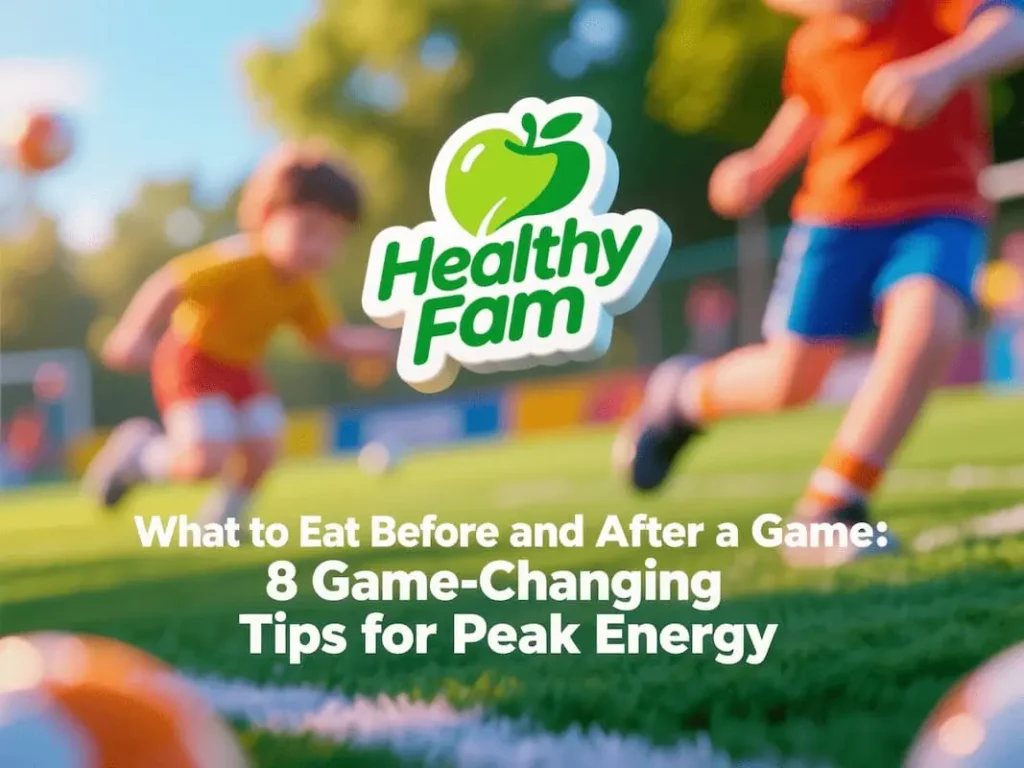
Source links
- Academy of Nutrition and Dietetics – Sports Nutrition
https://www.eatright.org/fitness/sports-and-performance/fuel-your-workout/sports-nutrition
Expert advice on pre- and post-workout nutrition for athletes. - Mayo Clinic – Nutrition for Athletes
https://www.mayoclinic.org/healthy-lifestyle/nutrition-and-healthy-eating/in-depth/nutrition-for-athletes/art-20046790
Science-backed guidance on fueling for performance and recovery. - Harvard T.H. Chan School of Public Health – Carbohydrates and Health
https://www.hsph.harvard.edu/nutritionsource/carbohydrates/
Explains why carbs are essential for athletic energy. - National Institutes of Health (NIH) – Protein and Athletic Performance
https://www.ncbi.nlm.nih.gov/pmc/articles/PMC5934993/
Research on protein needs for muscle repair and recovery. - American College of Sports Medicine (ACSM) – Nutrition for Athletes
https://www.acsm.org/read-research/resources/acsms-guides-for-healthy-living/sports-nutrition
Official guidelines on fueling and hydration for peak performance. - CDC – Physical Activity and Nutrition for Youth Sports
https://www.cdc.gov/healthyschools/physicalactivity/youth.htm
Tips for young athletes on eating well for games. - NCAA – Fueling the Student-Athlete
https://www.ncaa.org/sports/2018/8/28/fueling-the-student-athlete.aspx
Nutrition strategies for college athletes. - USDA MyPlate – Eating for Physical Activity
https://www.myplate.gov/life-stages/active-people
Official U.S. government guidance on eating for activity. - Gatorade Sports Science Institute – Pre-Exercise Nutrition
https://www.gssiweb.org/en/sports-nutrition-education/athletic-performance/pre-exercise-nutrition
Science-based insights on fueling before competition. - Cleveland Clinic – Best Foods to Eat Before and After a Workout
https://health.clevelandclinic.org/best-foods-to-eat-before-and-after-a-workout/
Practical list of real foods for game-day energy and recovery. - NHS – Healthy Eating for Sport
https://www.nhs.uk/live-well/eat-well/healthy-eating-for-sport/
Official UK guidance on eating for physical activity. - British Nutrition Foundation – Physical Activity and Diet
https://www.nutrition.org.uk/healthy-sustainable-diets/physical-activity.html
Balanced advice on fueling for exercise and sport. - NHS – Hydration and Sport
https://www.nhs.uk/live-well/eat-well/healthy-drinks/
Tips on staying hydrated before, during, and after games. - UK Sport – Athlete Nutrition Guidance
https://www.uksport.gov.uk/what-we-do/performance-support/nutrition
High-performance nutrition strategies for elite athletes. - British Dietetic Association (BDA) – Sports Nutrition Fact Sheet
https://www.bda.uk.com/resource/sports-nutrition.html
Professional dietitian-approved sports nutrition tips. - BBC Good Food – Pre-Workout Meals
https://www.bbcgoodfood.com/howto/guide/best-foods-eat-before-after-workout
Popular, practical food ideas for athletes. - England Football – Nutrition for Players
https://www.englandfootball.com/player-development/education/nutrition
Football-specific nutrition guidance for youth and adults. - Institute of Sport, Exercise and Health (ISEH) – Performance Nutrition
https://www.iseh.co.uk/our-services/sports-medicine-clinic/nutrition/
Clinical sports nutrition services in London. - The Sports Tribunal – Nutrition for Young Athletes
https://www.sportstribunal.org.uk/resources
Resources on youth athlete fueling and recovery. - Nuffield Department of Orthopaedics, Rheumatology and Musculoskeletal Sciences – Exercise Nutrition
https://www.ndorms.ox.ac.uk/research/research-themes/exercise-medicine
Oxford University research on exercise and nutrition. - Health Promotion Board (HPB) – Healthy Eating for Active Living
https://www.healthhub.sg/programmes/148/healthy_eating
Singapore’s official guide to balanced diets for active individuals. - HPB – My Healthy Plate
https://www.healthhub.sg/programmes/148/healthy_eating/myhealthyplate
Visual guide to balanced meals, ideal for athletes. - Singapore Sports Council – Fueling for Performance
https://www.snac.org.sg/resources/nutrition
Nutrition resources for competitive and recreational athletes. - KK Women’s and Children’s Hospital – Nutrition for Young Athletes
https://www.kkh.com.sg/patient-care/conditions-and-treatments/nutrition-counselling
Pediatric sports nutrition advice. - Singapore General Hospital – Sports Nutrition Services
https://www.sgh.com.sg/patient-care/specialties-services/nutrition-and-dietetics
Clinical dietitian support for athletes. - ActiveSG – Eat Well, Train Well
https://www.myactivesg.com/sports/nutrition
Tips on eating for training and competition. - National University of Singapore (NUS) – Exercise and Nutrition Research
https://medicine.nus.edu.sg/dem/research/research-laboratories/nexlab/
Research on nutrition and athletic performance in Asian populations. - MOH Guidelines – Nutritional Requirements for Adults
https://www.healthprofessionals.gov.sg
Government health portal with nutrition standards. - Singapore Olympic Foundation – Athlete Support Programs
https://www.singaporeolympic.org.sg
Includes nutrition and wellness support for elite athletes. - HealthHub – Hydration Tips for Active Adults
https://www.healthhub.sg/a-z/health-conditions/196/dehydration
Practical hydration advice for athletes in tropical climates. - Chinese Nutrition Society – Dietary Guidelines for Chinese Residents (2022)
http://www.cnsoc.org
Official dietary recommendations, including for active individuals. - National Health Commission of China – Sports and Health
http://www.nhc.gov.cn
Government health portal with exercise and nutrition guidelines. - Beijing Sport University – Sports Nutrition Research
https://www.bsu.edu.cn
Leading institution for sports science and athlete nutrition in China. - China Anti-Doping Agency – Nutrition and Performance
https://www.chinada.cn
Safe nutrition practices for competitive athletes. - Shanghai Jiao Tong University – Exercise and Metabolism Studies
https://www.sjtu.edu.cn
Research on how food fuels physical performance. - China Daily – Healthy Eating for Athletes
https://www.chinadaily.com.cn
Reputable English-language news with wellness features. - Sinomed – Chinese Journal of Sports Medicine
https://www.sinomed.com
Academic journal publishing sports nutrition studies. - Guangdong Provincial Hospital of Integrated Chinese and Western Medicine – Sports Nutrition
https://www.gdhtcm.com
Integrative approach to athlete fueling and recovery. - Chinese Olympic Committee – Athlete Wellness Programs
https://www.olympic.cn
Includes nutrition, training, and recovery support. - Xinhua News – Fitness and Nutrition Trends in China
https://www.xinhuanet.com/english
News updates on sports, health, and wellness in China. - Irish Sports Council (Sport Ireland) – Nutrition for Sport
https://www.sportireland.ie
Official sports body with nutrition and performance resources. - Safefood – Healthy Eating for Young Athletes
https://www.safefood.eu
Cross-border food safety and nutrition advice for Ireland. - HSE – Healthy Eating for Physical Activity
https://www.hse.ie/eng/health/az/healthy-eating/
Ireland’s health service nutrition guidance.
Academic research on diet and athletic performance. - University College Cork – Food and Health Research
https://www.ucc.ie/en/foodhealth
Studies on nutrition, gut health, and energy metabolism. - Irish Rugby Football Union (IRFU) – Player Nutrition
https://www.irfu.ie
Elite athlete fueling strategies from national teams. - Dublin City University – Sport Science Programs
https://www.dcu.ie
Offers courses and research in sports nutrition. - Irish Examiner – Fitness and Nutrition Tips
https://www.irishexaminer.com
Reputable news source with wellness content. - Athletics Ireland – Nutrition for Runners
https://www.athleticsireland.ie
Practical advice for endurance athletes. - Healthy Ireland – Active Nation Initiative
https://www.healthyireland.ie
Government campaign promoting active lifestyles and good nutrition.
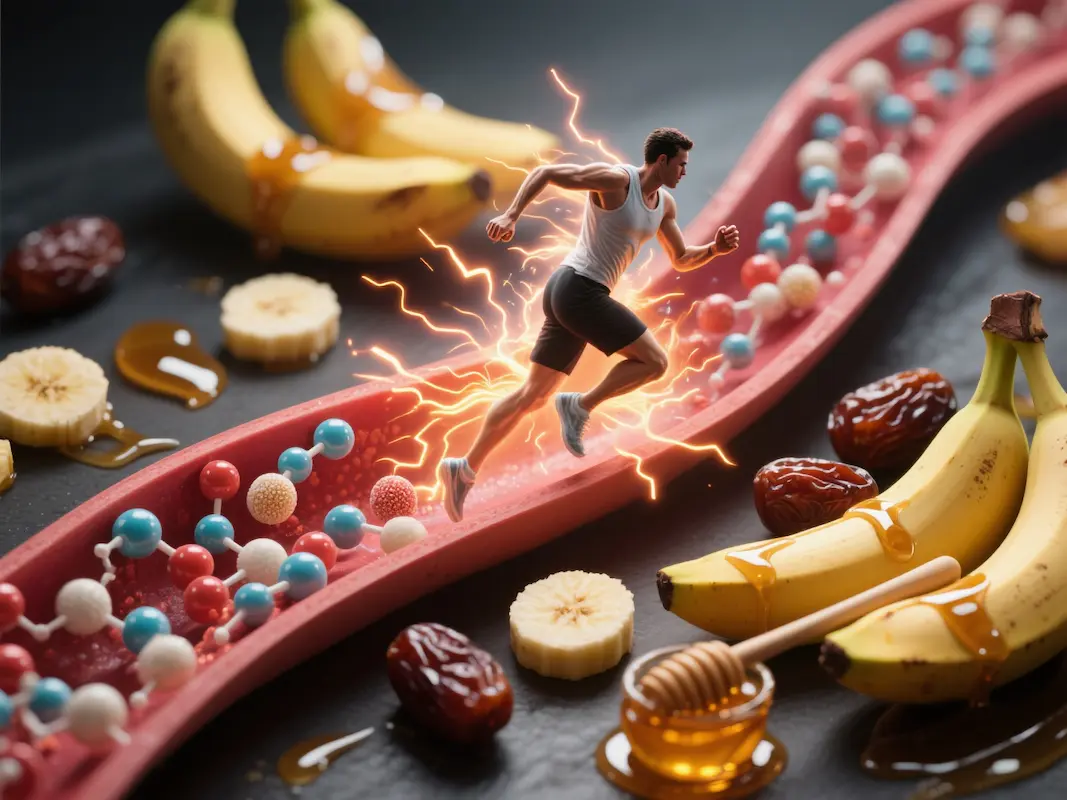
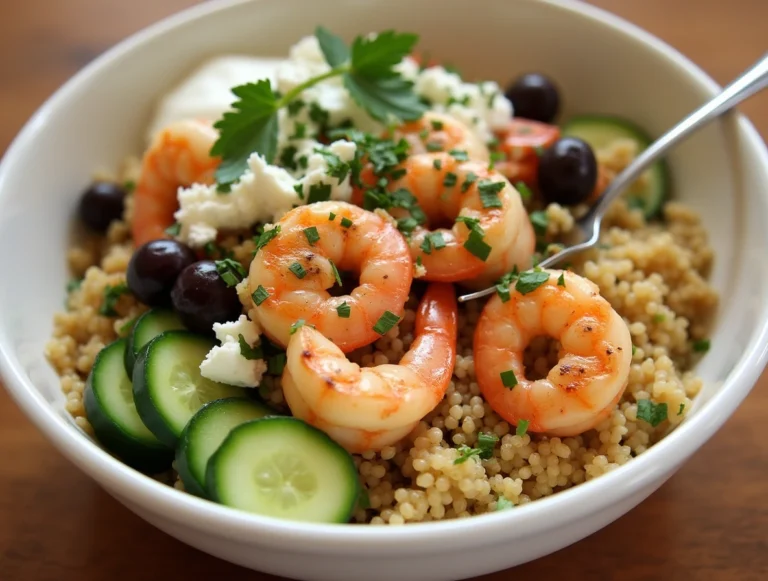
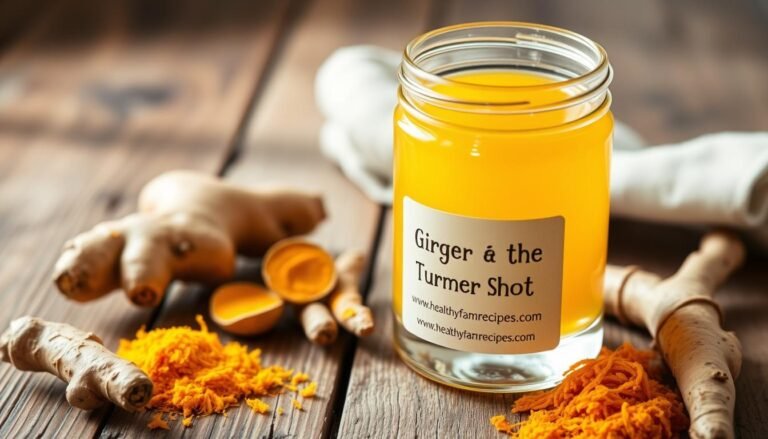
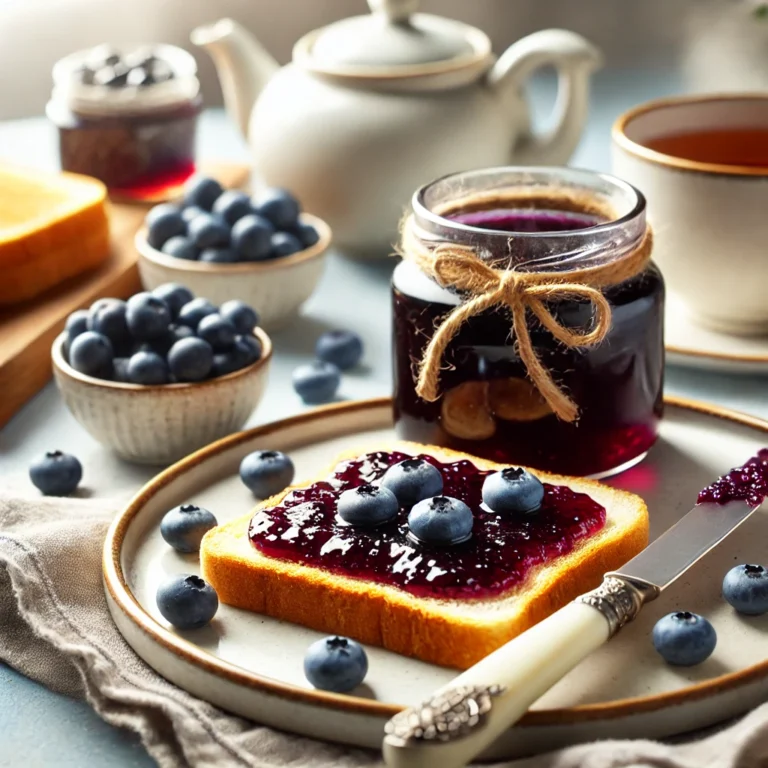
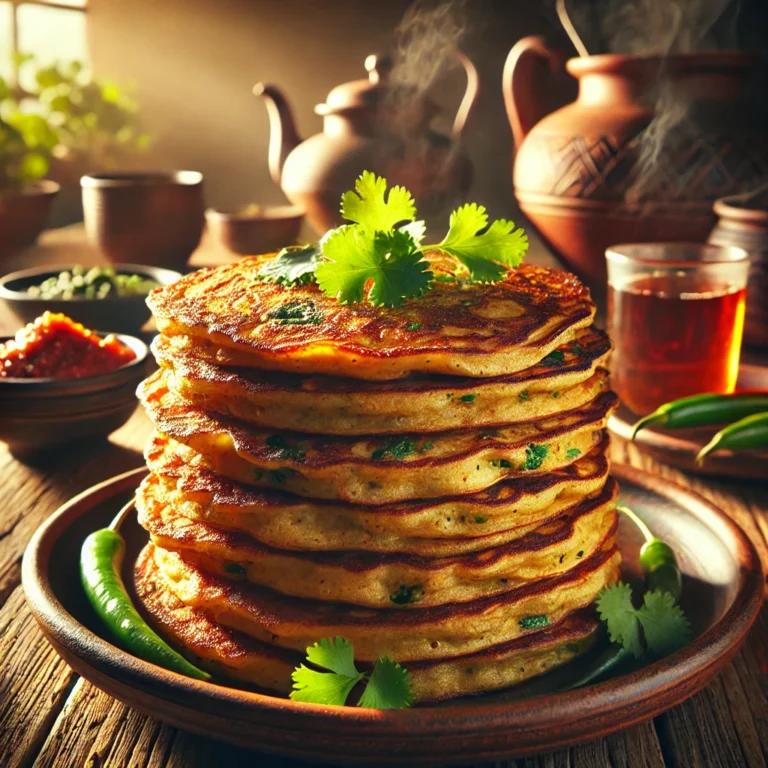
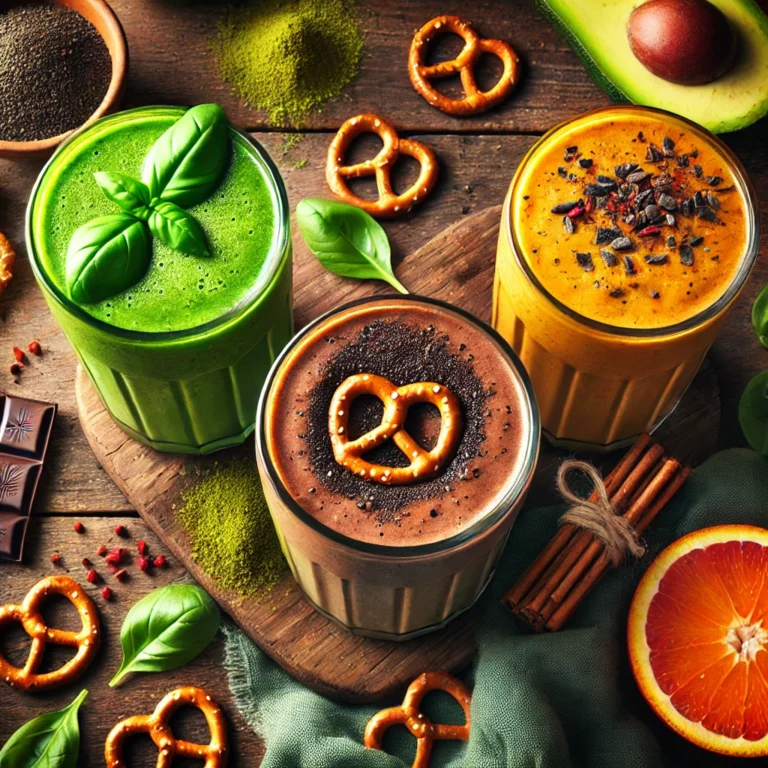
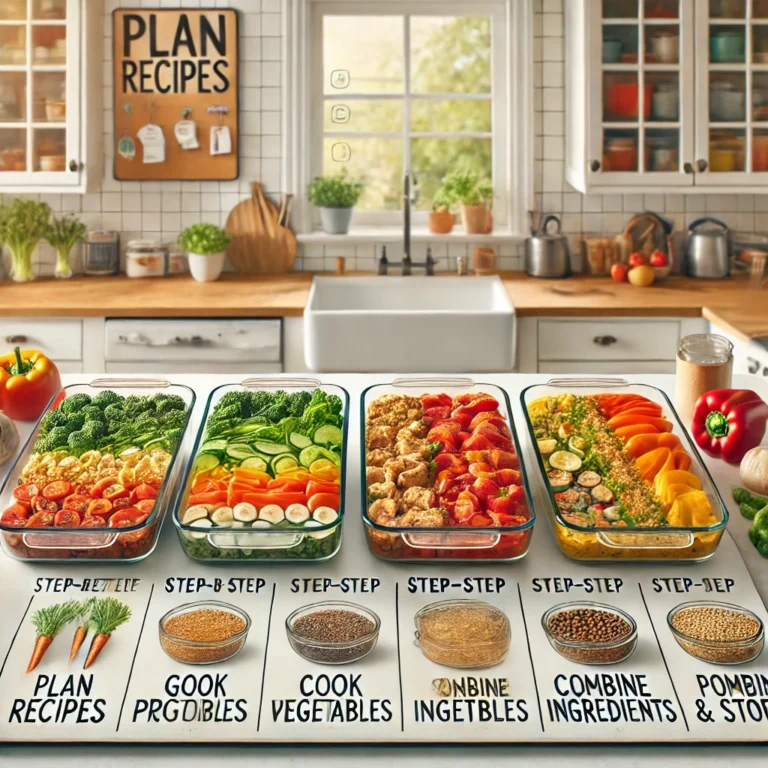
Absolutely! For demanding jobs, quick and healthy recipes that combine protein, complex carbs, and healthy fats are key to sustaining energy and supporting muscle recovery. Preparing nutrient-packed meals doesn’t have to be complicated—a few smart choices go a long way!
— HealthyFam Recipes: Where quick meets nourishing.